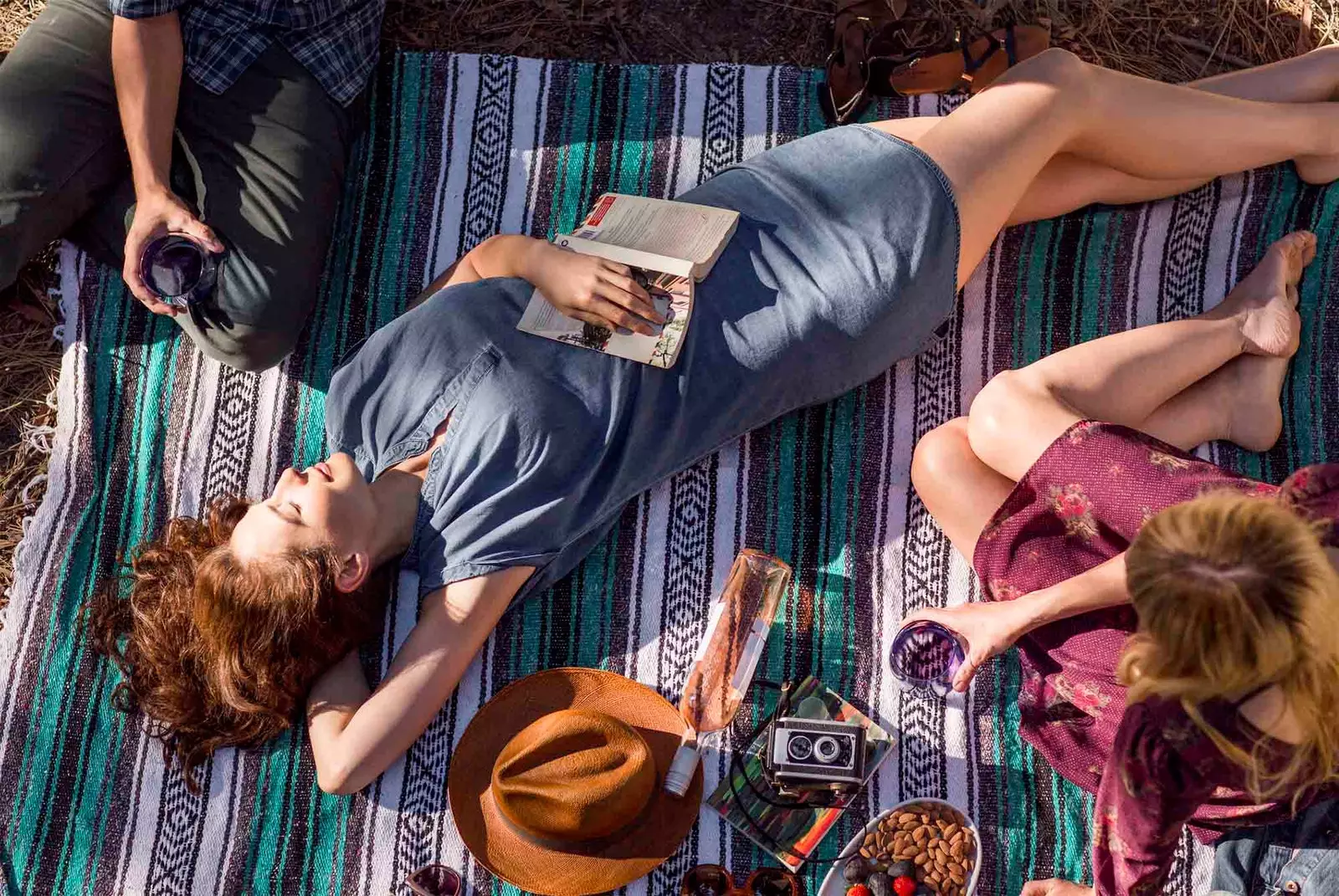
Enjoy without thinking about what others will be doing: that's JOMO
If the 21st century had to be remembered with only four letters, we would probably choose the acronym FOMO , which correspond to the Fear Of Missing Out . That is, the fear of missing out on one thing because we are doing another, the social anxiety caused by, for example, being at home, while our friends enjoy a concert -and share it on their networks-.
Or, worse, to the stress that it generates being on a trip and not taking advantage of 100% every minute of our vacation, continually thinking: “Is this the best I could be doing? Will you give me time to see everything I have to see?” , while continuously checking the photos of your destination that others have uploaded to Instagram.
But, as everything tends to balance, it seems natural that the antithesis of this stress has arisen: the JOMO , or Joy Of Missing Out, that is, the joy of losing everything, of curling up on the sofa happy after saying that you will not attend the one that many consider the event of the year.
"I don't think this is a particular idea of mine, but rather it is the articulation of a broader concept in our culture that simply did not have a convenient name," he says. Anil Dash in its Blog , where the term was first coined. “But sometimes -he continues-, naming things helps us to think about them. And, of all the things we might be trying to pay attention to, maybe feel better about our choices by spend our time wisely it is the best one to think about,” he adds.
Thus, for him, "there can and should be a joyful and serene enjoyment in knowing, and celebrating, that there are people who are going through the best time of their lives into something you would have loved to do but just aren't doing." It doesn't look easy, but Christina Crook tries to make it. She is the author of the book JOMO , and she assures that this philosophy “is gaining momentum as a conscious option to disconnect and experience life offline”.

It seems hard to disconnect, no matter how far away you are
“JOMO is the emotionally intelligent antidote to FOMO. Thanks to him, we embrace where we are in life instead of constantly comparing ourselves to the neighbor. We choose to be present to our experiences, knowing that this moment is all we have. Intentional acts of love like making eye contact, meeting a loved one at the bus stop, and smiling at others have a profound impact on our hearts and our world. Let's enjoy what we are doing here and now”, he proposes in his manifesto in favor of JOMO.
Crook wrote the volume with the name of this philosophy of life, whose subtitle is "finding balance in a connected world", after seeing a documentary in which the scene of a priest blessing smartphones . “For me, there was something wrong with that scene,” she recalls. That made her think, and she realized that -like everyone else- she spent her life checking Facebook, email, Instagram, Twitter and, in general, any of the many little icons that adorn our devices. So she decided to do digital fast for a month and see what happened.
“My decision to unplug came gradually, after moving far away from my family and friends (from Vancouver to Toronto, Canada). I was tired of facebook mediating my relationships and dissatisfied with my compulsion to constantly check it. I knew that the internet was making me emotionally disconnect from myself and my loved ones,” the writer told Traveler.es. “The average American spends more than two hours a day on social media. That, added up, works out to nearly five and a half years over a lifetime. What could we be doing with that time? Who is that time for? Does it align with our values? Is it time well spent?” she asks herself.

Let's celebrate the moment
“During my internet fast I discovered peace of mind and a huge amount of time I didn't think I had. I connected with neighbors and close friends , as she was forced to turn to people instead of Google for help. helped me to reactivate creative parts of myself that they had been asleep. I felt alive,” she recalls.
Since then, his life has never been the same. Now, she checks email only once a day, and to avoid wasting time online, she writes on paper. a list of tasks to be done before turning on the computer. "I work on that list as quickly as possible, then I shut down my computer and move on to other things," explains Crook, who says she wants to be known as the Marie Kondo of digital. “I limit my ‘presence’ on social networks to make room for the relationships and experiences that I live in the flesh. I orient my life towards joy and live it, and I move away from the exhausting demands of the internet and its relentless hustle and bustle. In fact, even avoid turning on any digital device one day a week . And she has given a talk TED explaining the whole process.
To inspire that change in others, Crook sends her community, Daily Jomo , three messages a week in which he proposes an action -"something wonderful, that only takes a few minutes and that makes you feel great"-, provides a fact -"a fact that, simply, you will not be able to believe that you have lived without knowing ”-, and attach a quote from happy people who will help you live in the present. Of course, knowing, perhaps, that doing it online is, to say the least, paradoxical, she is now preparing to send them online. analog to your mailbox, the one you can touch.

Enjoy the present
